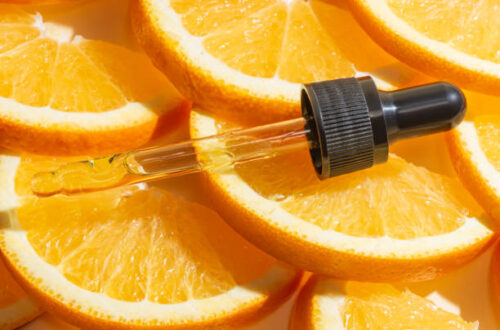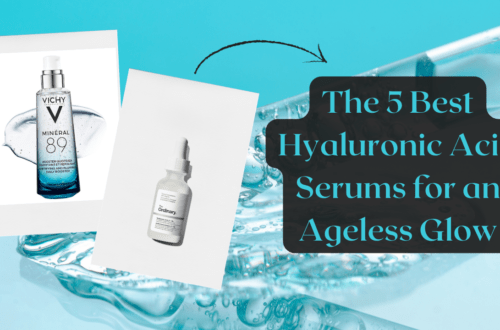
Ditch the Chemicals: 7 Reasons Why Mineral Sunscreens are the Safer Suncare Solution
With summer just around the corner, it’s time to start stocking up on sunscreen. But not just any sunscreen will do if you want to protect your skin and health. Traditional chemical sunscreens have come under fire in recent years due to potential health risks. That’s why more and more people are making the switch to mineral sunscreens.
But what exactly is a mineral sunscreen? How does it differ from chemical sunscreens? And why should you ditch the chemicals in favor of mineral sunblocks? Read on to find out.
What is a Mineral Sunscreen?
Mineral sunscreens, sometimes called physical sunscreens or sunblocks, work by physically blocking and reflecting UV rays before they can penetrate the skin. The active ingredients in mineral sunscreens are zinc oxide and/or titanium dioxide.
These minerals form a protective barrier on the surface of your skin, scattering UV rays away from your body. This is different from chemical sunscreens, which absorb into the skin and absorb UV rays through a chemical reaction.
7 Reasons to Choose Mineral Over Chemical Sunscreens
Not convinced mineral sunscreens are the way to go? Here are 7 compelling reasons to ditch the chemicals in favor of mineral sunblocks:
Better for Sensitive Skin
Chemical sunscreen ingredients like oxybenzone and avobenzone can cause skin irritation, rashes, and allergic reactions for those with sensitive skin. Mineral sunscreens are the gentler, more natural option less likely to cause problems.
Don’t Get Absorbed Into the Body
Research shows that chemical UV filters do get absorbed through the skin and into the bloodstream, which could potentially lead to health issues with repeated exposure and use over time. Mineral sunscreens create a physical barrier on top of the skin so they don’t get absorbed into the body.
Protect Against UVA and UVB
The minerals zinc oxide and titanium dioxide block the full spectrum of UVA and UVB rays. Some chemical sunscreens only protect against UVB rays which cause burning, while mineral sunblocks protect against skin aging UVA rays as well.
Longer Shelf Life
Chemical sunscreens are more likely to become ineffective and break down more quickly when exposed to sun and heat. Mineral sunblocks maintain their protective abilities better over time.
Better for the Environment
Certain chemical UV filters like oxybenzone have been found to damage coral reefs and marine ecosystems. Many places have banned sunscreens containing these ingredients to protect reefs. Mineral sunblocks are considered reef-safe.
Suitable for Everyone
Mineral sunscreens are non-comedogenic, non-irritating, and gentle enough for all skin types – from super sensitive to baby soft. They are pregnancy-safe and can even be used by those with conditions like melasma and rosacea.
Protect Against Blue Light
Mineral sunscreens can provide some protection against visible blue light emitted by electronic devices, which has been linked to skin damage and premature aging. Chemical sunscreens offer little to no blue light protection.
The Mineral vs. Chemical Sunscreen Debate
Of course, no sunscreen – mineral or chemical – is perfect. Mineral sunscreens sometimes get a bad rap for being thick, greasy, and leaving a white cast on skin. This was more of a problem in older mineral formulas that used larger particle sizes.
However, many newer mineral sunscreen brands use micronized or nano-sized mineral particles that spread on clear and lightweight. Tinted mineral sunscreens are also available to counteract any white cast.
At the end of the day, when it comes to the mineral vs. chemical sunscreen debate, mineral wins out for being the gentler, safer, and more natural option. Chemical filters still have unknown effects on health and the environment long-term.
For daily use, beach vacations, and keeping your whole family protected, mineral sunscreen is the way to go. Take a closer look at the top mineral sunscreen options and find one that works for your skin type and lifestyle. Your skin will thank you later.
The Best Mineral Sunscreens for Face & Body
While any mineral sunscreen is better than a chemical one, some of the best mineral sunscreen options include: Here’s a brief overview of some of the top mineral sunscreen brands and why they are among the best options:
Badger Mineral Sunscreen Cream SPF 30
This mineral sunscreen uses just five simple ingredients: uncoated zinc oxide, sunflower oil, beeswax, vitamin E, and sunflower vitamin. The gentle, hypoallergenic formula makes it ideal for sensitive skin and kids. It has a lightly tinted base to eliminate any white cast.
CeraVe 100% Mineral Sunscreen SPF 50
CeraVe’s mineral sunscreen contains zinc oxide and titanium dioxide to provide broad-spectrum UV protection. It’s lightweight, non-greasy, and water-resistant for up to 40 minutes. The formula contains three essential ceramides to help restore the skin’s natural barrier.
Blue Lizard Sensitive Mineral Sunscreen SPF 50+
With zinc oxide and titanium dioxide, this mineral sunblock is paraben-free, fragrance-free, and gentle enough for sensitive skin and even babies. It has a dry touch finish that stays water-resistant for up to 80 minutes.
Bare Republic Mineral Sunscreen Lotion SPF 30
This reef-safe mineral sunscreen uses transparent zinc oxide and titanium dioxide. The lightweight, sheer formula is water-resistant for up to 80 minutes and dries to a non-greasy finish. It’s vegan, cruelty-free, and free of chemical filters.
Drunk Elephant Umbra Sheer Physical Daily Defense SPF 30
This 100% mineral sunscreen is a cult favorite for good reason. It has a silky, serum texture that dries down sheer on all skin tones. The zinc oxide formula is boosted with potent antioxidants for extra environmental protection.
Many of these top mineral sunscreen brands make formulas specifically for the face that are lightweight and non-greasy. No matter which mineral sunblock you choose, be sure to apply liberally and reapply often when spending extended time outdoors.
Making the Transition to Mineral Sunscreen
If you’re used to using chemical sunscreens, making the switch to mineral sunblocks can take some adjustment. Here are a few tips to help ease the transition:
Application Techniques
Because mineral sunscreens work by sitting on top of the skin instead of being absorbed, proper application is key. Be sure to apply liberally and rub it in well, going over the same area multiple times.
Don’t just apply a thin, streaky layer – you want an even, visible coat on all exposed areas. This helps create that reliable physical barrier.
Give It Time to Set
With chemical sunscreens, you can usually apply them right before going out in the sun. But mineral sunblocks need a little time (around 15 minutes) to fully adhere to and bind with the skin before sun exposure.
Finding the Right Formula
Not all mineral sunscreen formulas are created equal. If you try one that leaves an undesirable white cast or has a texture you don’t like, don’t give up! There are so many mineral sunscreens to choose from now in terms of tints, finishes, and formulations for different skin types.
Try out a few different brands and formulas until you find one that feels lightweight, applies smoothly, and doesn’t leave you looking like a ghost.
Commit for Best Protection
While mineral sunscreen has its advantages over chemical versions, that protection maxes out at about SPF 50. So for optimal defense against UV damage, experts recommend combining mineral sunscreen with other protective measures.
Along with applying (and reapplying) a high-quality mineral sunblock, you’ll also want to seek shade, wear sun-protective clothing like rash guards, and avoid peak sun hours when possible.
Make it a Priority
At the end of the day, the most important thing is to make sun protection an everyday priority – not just for days at the beach. Mineral sunscreens make that commitment easy with their “apply and go” formulas that pose little risk to humans or the planet.
Whether you’re hitting the hiking trails, running the kids to weekend sports, or just running errands around town, get in the daily habit of smoothing on that zinc oxide and titanium dioxide barrier.
The more you make mineral sunscreen a routine part of your life, the better protected you and your family will be from the sun’s harmful UV rays that can lead to skin cancer, premature aging, and other issues down the road.
So, skip the chemicals and make the simple, safe switch to mineral sunscreens. Your skin’s future self will be thanking you.
Continue Reading – You’ll Never Believe These 15 Lightweight Moisturizers That Leave Skin Glowing, Not Greasy!










